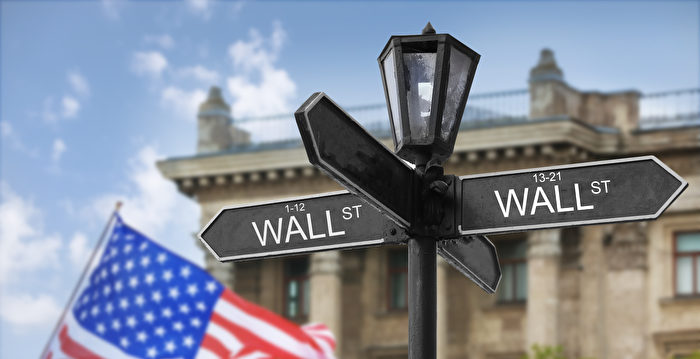[Epoch Times, July 22, 2021](Epoch Times reporter Zhang Dongguang comprehensive report) US stocks showed strong resilience this week. The Dow plunged 725 points on Monday under the delta variant virus, but the following two trading days It immediately rose by 549 points and 286 points, and it rose by 110 points in three trading days this week, reflecting that investors in the US stock market are very calm about the negative effects of the epidemic, and savvy investors are adopting a bargain-hunting strategy.
Well-known Wall Street expert Tom Lee reiterated on Tuesday that he believes that the S&P 500 could rise to 4,700 points before the end of the year, which is a 7.8% upside from Wednesday’s closing of 4,358 points. His optimistic stocks include energy stocks, technology stocks and base metals.
Tom Lee, the founder of Fundstrat, a strategy consulting firm, gave six reasons why he believes the stock market will continue to rise before the end of the year. First, the potential consumption momentum of American consumers will start retaliatory consumption expenditures as the economy restarts. American consumers are currently in good financial conditions, their debts are shrinking and their savings rate is rising during the epidemic.
The second reason is that the company’s potential capital expenditures will also launch retaliatory expenditures. During the epidemic, many companies suspended their expansion plans, but due to strong consumer demand after the economic restart, companies have been forced to increase investment and increase production capacity.
The third reason is the retaliatory repurchase of companies buying back their own stocks. At the same time, during the epidemic, listed companies reduced the scale of buying back stocks, but now as the economy recovers, their attitudes to buying back stocks have changed, and their stock buying actions are likely to stimulate further stock prices.
According to statistics from JP Morgan Chase, in the last year of the outbreak, US listed companies only bought back US$525 billion of their own stock, but this year may exceed the historical high of US$850 billion.
The fourth reason is that the Federal Reserve will continue to be dovish because of the Delta virus epidemic, which will surprise the market with a bull market.
The fifth reason is that the Delta virus epidemic will also allow the federal government to provide more stimulus policies to support the economy. At present, the public’s attention is that the $1 trillion infrastructure plan may be passed by Congress.
The sixth reason is that the Delta virus epidemic will keep interest rates low and support the risk premium of the stock market (referring to investors expecting higher returns in the stock market).
A counter-indicator to measure stock market valuation is the U.S. 10-year bond yield. This index has soared to around 1.75% at the end of March and is currently 1.292%. The lower the bond yield, the more money will flow into the stock market.
Some pessimistic experts have always predicted that the stock market is in danger of a crash at any time. However, the S&P 500 index has risen by about 98% since its low in March last year. There has not been a bear market trend that has pulled back more than 20% in the process, indicating this epidemic. After the bull market continues, the upward momentum may slow down, but the trend remains undoubtedly upward.
Randy Frederick, Head of Trading and Derivatives at Charles Schwab, believes that many investors nowadays adopt a bargain-hunting strategy. As long as a sharp drop will quickly intervene, the stock market is not prone to 10 % Correction.
The enthusiasm of investors to buy stocks is also reflected in the purchase of ETF index funds. Investors bought a total of US$497 billion in ETF stock funds last year, but they bought US$486 billion in the first seven months of this year, and this year will easily exceed last year’s level.
Mark Haefele, chief investment officer of UBS Global Wealth Management, also believes that the stock market on Monday overreacted to the threat of the Delta epidemic, but the financial structure of consumers is excellent, and companies are also eager to increase capital expenditures and build product inventories. Corporate surplus will be supported.
Editor in charge: Ye Ziwei #
.
